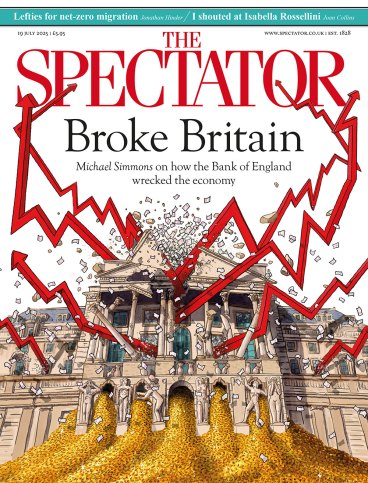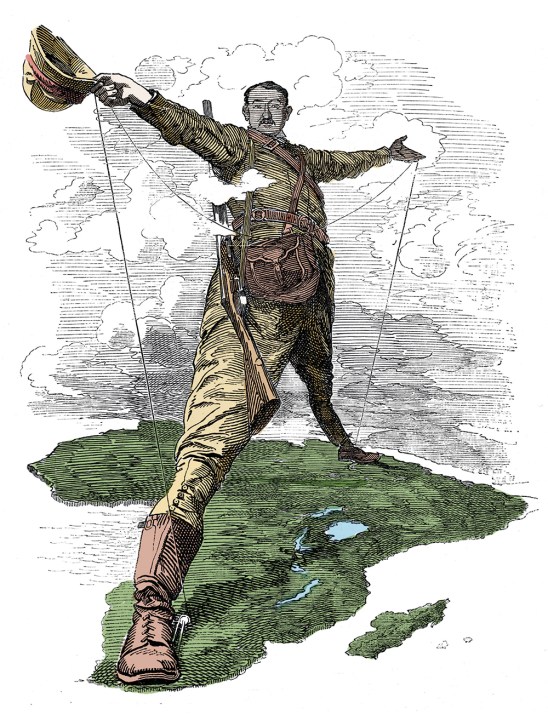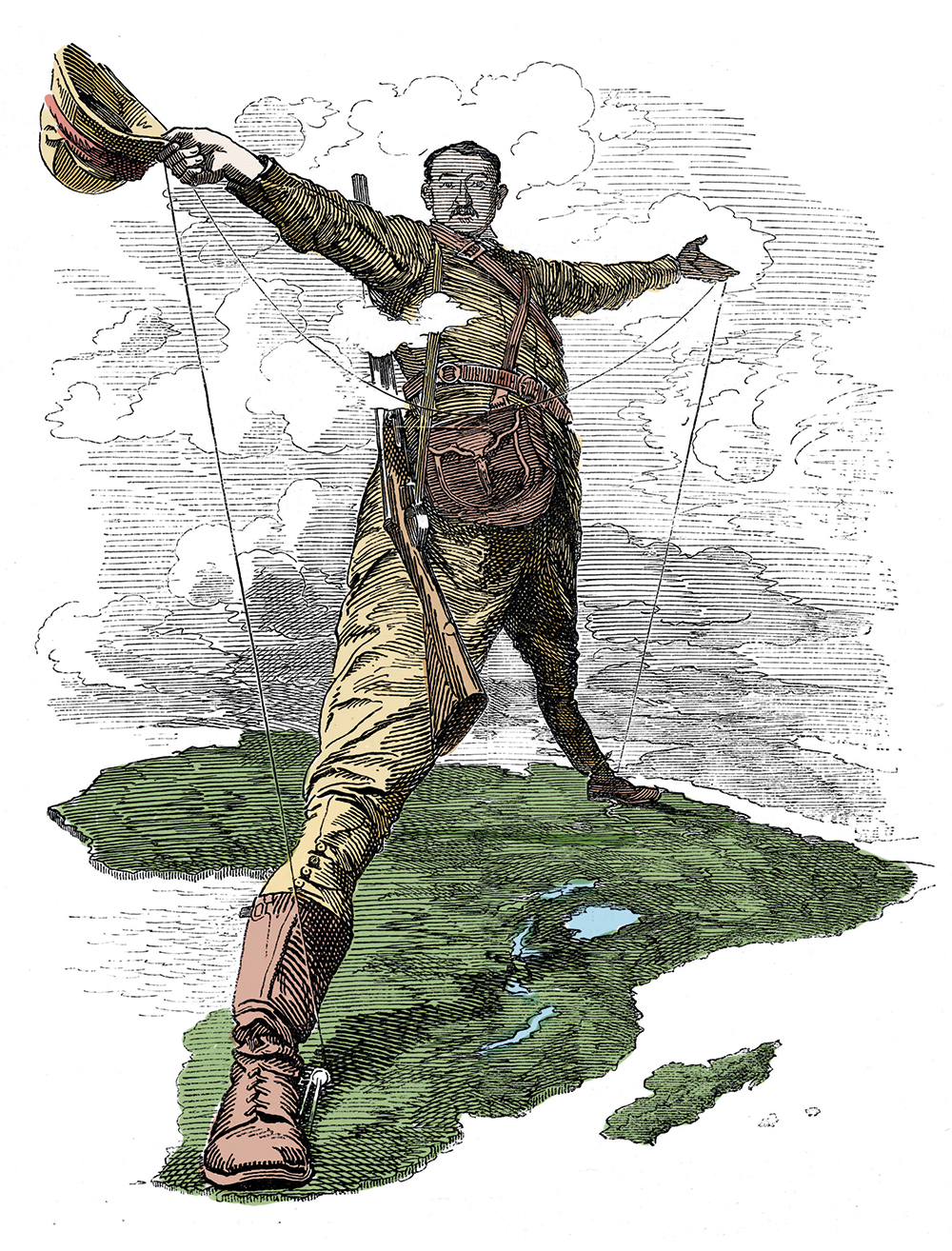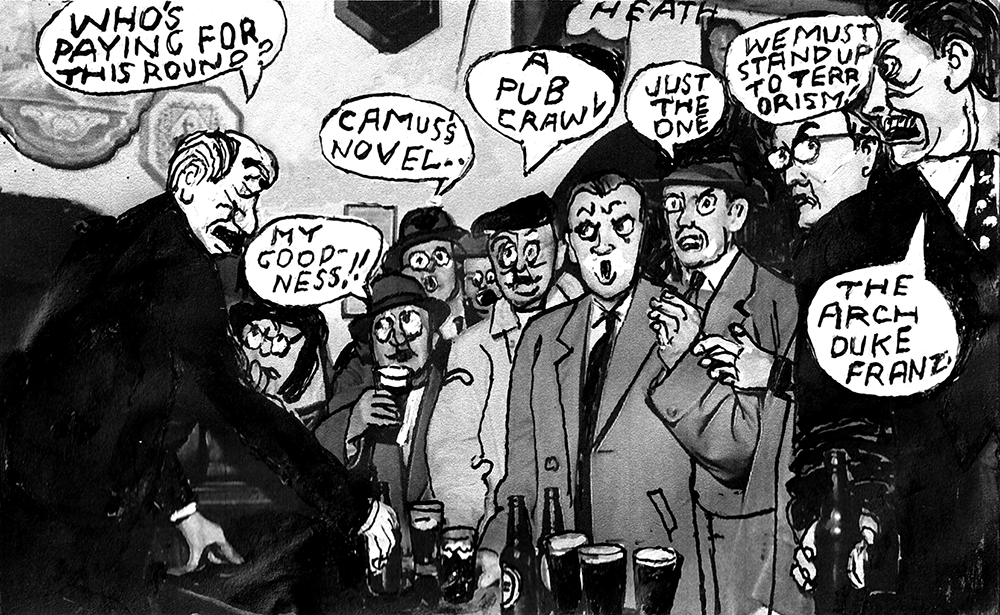
This is a brave and learned book. I would recommend it to anyone interested in the history of Africa; who has taken sides in the recent quarrel about ‘Rhodes Must Fall’, in Oxford or other parts of the world; or who wants to entrench themselves in contrary positions in our apparent ‘culture wars’.
It is the biography of a vicar’s son, born in Bishop’s Stortford, Hertfordshire in 1853, who went as a teenager to Africa to join his elder brother who’d bought a plot of land in Natal. One day, walking past a stream by the side of a field, he noticed some pebbles gleaming especially brightly. They were diamonds. By the time Cecil Rhodes enrolled as an undergraduate at Oriel College, Oxford, aged 20, he had an annual income of £23,000 – the equivalent of about £1.5 million today.
Money is power, and the diamond and gold mines of South Africa made Rhodes and his pals prodigiously rich. Today’s billionaires, such as Elon Musk, may make half-hearted attempts to involve themselves in government, but compared with Rhodes they are lightweights. Here was a man whose fantastic wealth and power mania awoke greed in others – among them Alfred Beit and Natty Rothschild – and who eventually encouraged the Liberal imperialists and Colonial Office in London to embrace the dream of taking over an entire continent. We are still living with the consequences.
I know that some Spectator readers think it amusing to see Rhodes as a bit of a hero – or at least scorn those who protested outside the building on the High Street in Oxford adorned by his statue. He was certainly one of the greatest benefactors the university ever had. In his will endowing the Rhodes scholarships he specified that ‘no student shall be disqualified for election on account of his race or religion’.
William Kelleher Storey explains that, although these are the words, Rhodes probably meant by ‘race’ simply American, British or German (he set aside three scholarships for Germans) and that he did not necessarily envisage giving money to Africans to study at Oxford. He was entirely deaf to Gladstone’s words at the beginning of the First Boer War: ‘Remember the rights of the savage, as we call him.’ Rhodes was unapologetically racist.
Aged 20, Cecil Rhodes had
an annual income equivalent to £1.5 million today
Oxford was where his imperialist aspirations flowered. He heard John Ruskin lecture and it made him want England to ‘found colonies as fast and as far as she is able’. Reading William Winwood Reade’s The Martyrdom of Man when an undergraduate was crucial. Rhodes kept a copy beside him till his death. ‘That book – which asserted the superiority of Europeans to Asians and Africans as a matter of scientific fact derived from the evolutionists – has made me what I am,’ he wrote. Europeans, he sincerely believed, had the most highly developed intellects: ‘Let me ask those who admit the development of all civilised people from a savage state… how it is that Europeans have advanced, while others have remained in a savage state.’ The ‘Hindoos’ and Chinese were cited as being obvious examples.
The Colonialist is primarily a work of history, which places Rhodes’s actions and achievements in the story of Africa. It is not really a personal book, and I wanted much more about the man himself. For example, he and Leander Starr Jameson (of the celebrated raid) probably had some kind of relationship, but because Storey can find no evidence for Rhodes’s homosexuality he does not reflect on it.
Rhodes’s desire to connect the whole of Africa from the Cape to Cairo and to make it all British is described in meticulous detail. And it was to this cause that he devoted his time and money – from his first discovery of diamonds in his brother’s streams to his last days, when he was richer than almost anyone else in the British Empire. By then he was the director of several gold and mining companies and in a position to bribe tribal elders, kings and chieftains with arms and cash to allow him to create a whole new country: Rhodesia. Women play almost no part, and you can’t help feeling that the whole story is essentially gay (though I still can’t explain why this is so obvious on every page).
Open-pit mining for diamonds was catastrophically dangerous, as well as being hideously hard work. But when African labourers fell to their deaths in landslides they were deemed stupid for not understanding the warnings bellowed at them in a language they did not speak. The book astutely reminds us that neither Rhodes nor his American mining engineer and sidekick Gardner Fred Williams had any idea of what life was like in the mines from which they made their millions. Workers would be strip-searched before returning home in case they had stolen a single gemstone, or kept totally naked in corrals for four or five days and then subjected to enemas.
Rhodes pressed on from what is now South Africa to take possession of the territories of modern Zambia and Zimbabwe which for decades bore his name – north and south Rhodesia. And it was he who egged on Jameson to launch his raid on the Transvaal in 1895. The attempt to topple Paul Kruger, the Boer leader, was responsible for the Second Boer War, in which Lord Kitchener behaved with unforgettable brutality towards the Boers, exposing them to scorching heat in concentration camps – that British invention – and killing thousands of civilians.
Storey’s difficulty is that of any historian of European or American background approaching this subject. The Colonial Office and Queen Victoria were initially doubtful about the Rudd Concession of 1888, whereby King Lobengula of Matabeleland supposedly agreed to concede Bulawayo to the British in exchange for guns and money. But even if they doubted the legitimacy of these arrangements, and were prepared to prosecute Jameson for his undoubtedly illegal raid, the British government and their monarch were in the end willing to fight a war to defend the principle which ruled the piratical Rhodes’s life. This was that Africa should not be in the hands of the Dutch, the Portuguese or the Germans – and certainly not the Africans. The continent was far better off being administered by British boys who had been to boarding schools and read Rider Haggard. Rhodes’s influence, based on gold and diamonds, turned the morally nuanced British nation and Empire, which like most institutions was a mixture of good and evil, into a brigand state.
And so the British persuaded themselves that they were entitled to own and plunder Africa, and that such greedy dishonesty was a sign of their moral superiority to the inhabitants. This insanity can largely be attributed to the propensity of suddenly acquired wealth to drive the possessor mad. Rudyard Kipling was a great writer, but his enthusiasm for Rhodes’s vision for Africa was deluded. This cannot be a matter of opinion, like taking sides when dis-cussing Charles I vs Oliver Cromwell in the English Civil War. Those who scream with rage against Rhodes and his legacy are simply right and those who try to defend him and what he did are simply wrong.
Being a wishy-washy white man of a certain age, I want to add, of course, that this is not a reason why Rhodes Must Fall – if by that is meant not just removing his effigies but seeking to erase his memory. We need to know the history – which is so punctiliously told in this book. It has never been related before in such detail, or with such impartiality, or awareness of the rage which the very name of Rhodes inspires in African hearts.
I am glad I’m not a Fellow of Oriel, or Warden of Rhodes House in Oxford, having to work out what to say to the Rhodes Must Fall contingent. Much of Oriel’s wealth and the very existence of Rhodes House derive from crimes every bit as sinister as those perpetrated by the Third Reich.








Comments